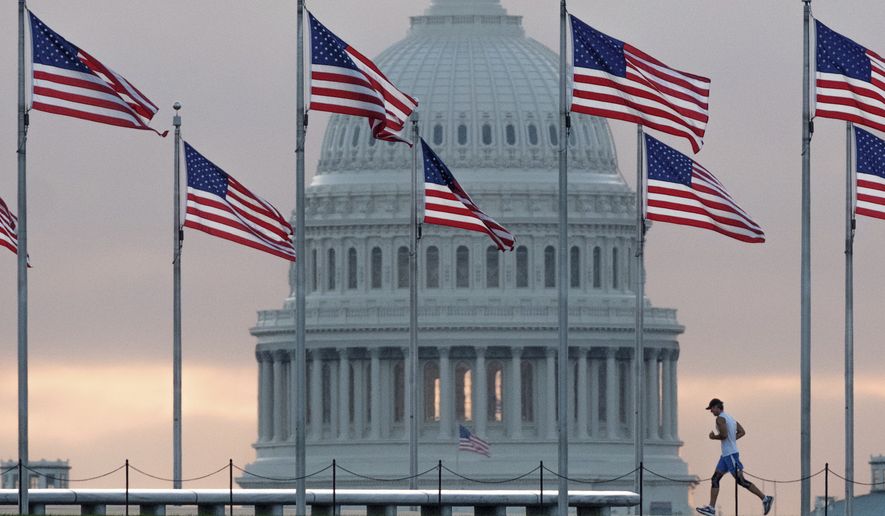Negotiators reached a deal Monday on the first three spending bills for the new fiscal year, in what lawmakers touted as the best progress in a decade on making the annual funding process work.
The three bills — to fund veterans’ benefits, priority water and energy projects, and Congress’ own accounts — will see their first vote in the House later this week, and should then easily clear the Senate, en route to President Trump.
Should Mr. Trump sign them, it would begin to defuse the threat of a government shutdown later this year. The three bills are the first of the dozen needed to keep the government operating each year.
But it’s been years since Congress cleared even one of them before the Oct. 1 start of the new fiscal year, leaving the government lurching from shutdown showdowns to stopgap funding bills.
Both Republicans and Democrats vowed for this year to be different, with the GOP agreeing to forgo seriously controversial policy fights over abortion and immigration, and Democrats agreeing not to engage in obstruction.
It helped that Congress also agreed on a massive cash infusion earlier this year, giving the lawmakers who write the spending bills plenty of room to splash money across priority projects — though sending the government deeper into the red.
“This package is not perfect, but that is the nature of compromise,” said Sen. Patrick Leahy of Vermont, the top Democrat on the Senate Appropriations Committee.
The package of bills includes $97.1 billion for the Veterans Affairs Department and construction on military bases, $44.6 billion for the Energy Department and some Army Corps of Engineers water projects, and $4.8 billion to run Congress.
Passing the bills now — and having Mr. Trump sign them — would guarantee funding for those programs through Sept. 30, 2019.
Congress is also rushing to finish six other bills that, combined with the first three, would account for nearly 90 percent of all government funding.
If Mr. Trump signs them all, there would be little space left to shut down the government, should he want to force a fight over his border wall.
He could still threaten Homeland Security Department money — which isn’t among the bills Congress is rushing — but even then, most of that department’s funding is either for essential personnel such as border agents, the Coast Guard and emergency management officials, or has its own dedicated funding, such as the legal immigration service.
• Stephen Dinan can be reached at sdinan@washingtontimes.com.




Please read our comment policy before commenting.